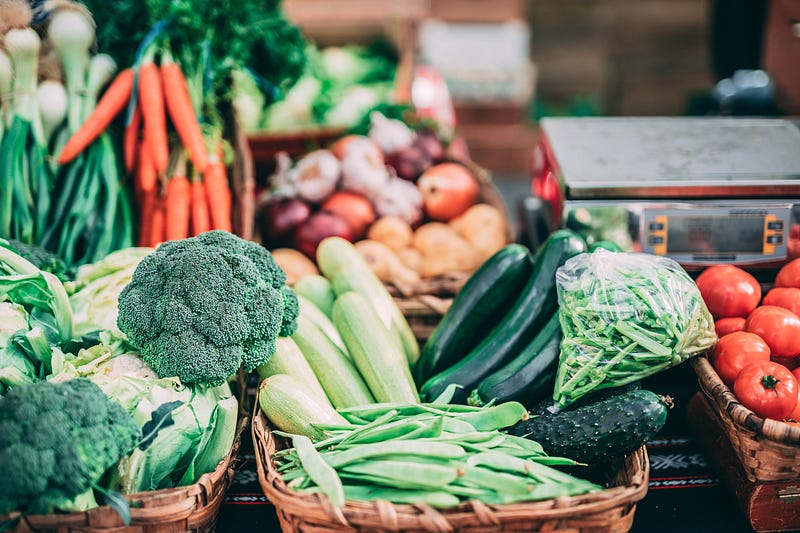Why Do We Dislike the Taste of Vegetables? Insights into Our Cravings
Written on
Chapter 1: The Vegetable Dilemma
Have you ever wondered why you find yourself craving pizza and donuts instead of broccoli, despite knowing the health benefits of vegetables?

I can relate; I often feel the same disappointment when I realize my burger is gone but the salad remains untouched. The truth is simple yet often overlooked: many people consider vegetables unappetizing.
You might be ready to defend your love for vegetables with arguments like, “They taste great when sautéed with garlic and butter!” or “Roasted endive with Gruyère cheese is divine!” But let’s face it—most of us wouldn’t choose a salad over a bucket of fried chicken if given the option.
So why is it that vegetables, despite their nutritional value, don’t entice us? Is it really necessary to hide zucchini in chocolate cake to make it palatable? The answer lies in our evolutionary history, which has shaped our food preferences.
Section 1.1: An Evolutionary Perspective
In evolutionary terms, our inclination towards calorie-dense foods is a relatively recent development. Take a moment to reflect on nature documentaries or your own experiences observing wildlife. Overweight animals are a rarity, with few exceptions such as hibernating species that bulk up before winter or bears scavenging near human habitats. Generally, animals in the wild maintain a lean physique.
This is largely due to the scarcity of food resources. Animals instinctively consume as much as they can when food is available, anticipating possible future shortages. As a result, our bodies have evolved to crave high-calorie foods, particularly those that are fatty, meaty, or sweet. It’s no surprise that these flavors are incredibly appealing to us—they signal energy-rich sustenance.

Section 1.2: The Historical Context of Our Diets
Historically, our ancestors faced food scarcity; they couldn't simply run to the grocery store for a quick meal. Hunting for meat was a risky endeavor, often resulting in hunger if unsuccessful. In contrast, gathering vegetables, fruits, and roots was more reliable, requiring less effort to obtain calories. Many hunter-gatherers consumed primarily gathered foods, including honey as a sweet, calorie-rich treat.
Given this context, there was no evolutionary need for vegetables to taste appealing. When faced with the choice between Brussels sprouts and starvation, people would naturally opt for the veggies, regardless of their flavor.
Chapter 2: The Shift in Our Fiber Intake
The advent of agriculture and domestication significantly changed the landscape of our diets.
One striking change is the reduction in dietary fiber intake. The average American consumes around 15 grams of fiber daily, which is less than half of the recommended amount of 25-30 grams. In contrast, the Hadza, a contemporary hunter-gatherer tribe, consume up to 100 grams of fiber each day. This disparity may contribute to the rise of obesity, heart disease, and other diet-related health issues.
Section 2.1: Understanding Our Microbiome
Research indicates that our gut microbiome plays a crucial role in our overall health, and fiber is a key factor in promoting microbial diversity.
The decline in vegetable consumption, especially raw or lightly cooked options, results in lower fiber intake. While some diets emphasize lean meats, a greater focus on increasing fiber could be more beneficial, mirroring the diets of our hunter-gatherer ancestors.
Subsection 2.1.1: The Impact of Exposure on Food Preferences
It's also important to recognize that our food preferences are significantly influenced by early exposure. Many people develop aversions to vegetables based on how they were prepared in childhood. For instance, if you grew up eating overcooked broccoli, it’s unlikely you’ll appreciate it as an adult.
Conversely, cultural differences in dietary preferences can also be observed, as seen in a scene from the Pixar film “Inside Out,” where a child’s dislike for broccoli puzzled Japanese audiences who enjoy the vegetable.
In general, humans have a natural aversion to bitter flavors, which many plants possess as a defense mechanism against being eaten.

Wouldn’t it be beneficial if evolution had led us to crave the taste of nutritious vegetables instead of calorie-laden options? Unfortunately, our innate preferences have not adapted to the abundance of food available today.
To combat this, we might consider adopting strategies similar to our ancient ancestors, such as filling our homes with fiber-rich vegetables while limiting access to calorie-dense foods. By doing so, we can gradually train our taste buds to appreciate the flavors of vegetables—a process that takes time and patience. Perhaps this could be a worthy New Year’s resolution?